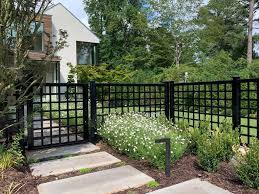Past their sensible energy, fences carry significant symbolic importance in individual communities, symbolizing ideas of possession, identification, and interpersonal limitations. As actual physical symptoms of boundaries, fences (ploty) condition our perceptions of room and effect our relationships with all the created environment. Let’s explore the further which means behind fences and realise why they may be more than simply structures—they are symbols of human customs and modern society.
1. Possession and Territory:
fences (ploty) symbolize possession and territorial borders, marking in which one home ends and the other will begin. By understanding borders, fences set up a feeling of management and control over land, reinforcing specific or collective personal identity. In countryside areas, fences act as perceptible markers of property ownership, delineating job areas, pastures, and property collections. In city settings, fences demarcate individual house from community area, asserting possession and exclusivity.
2. Sociable Department and Addition:
Fences also can stand for interpersonal divisions and exclusions within culture. High wall space and limitations may signify divorce and inequality, producing bodily obstacles that break down communities based on socio-economic position or other factors. However, fences with open gates and reduced wall space symbolize inclusivity and connection, welcoming interaction and encouraging feelings of community. The style and presence of fences reveal underlying social dynamics and power structures.
3. Social Identification:
In lots of countries, fences carry deep cultural significance and so are imbued with meaning that demonstrates cultural values and practices. By way of example, in a few countries, elaborate fences are signs of position and reputation, showcasing money and success. In comparison, in other countries, basic and useful fences might be respected with regard to their practicality and utilitarianism. Understanding the societal framework of fences allows us to value their symbolic importance in numerous communities.
4. Mental Limitations:
Fences could also signify mental health restrictions that determine individual area and autonomy. By producing bodily limitations, fences give people with a sense of stability and personal privacy, permitting them to determine boundaries and control use of their personal space. This experience of limit control is crucial for sustaining mental well-becoming and interpersonal relationships, since it will allow men and women to assert their autonomy and guard their individual borders.
5. Environment Affect:
The proliferation of fences has environmental effects, specifically in natural countryside and wild animals environments. Comprehensive fencing can fragment environments and interrupt animals corridors, influencing biodiversity and ecosystem health. Nonetheless, eco-helpful fencing choices, such as wild animals-friendly styles and permeable boundaries, supply solutions that equilibrium man requires with enviromentally friendly efficiency. By decreasing their environmental footprint, fences can contribute to the preservation of normal panoramas and wildlife habitats.
In conclusion, fences are not just actual physical components they are symbols that signify sophisticated interpersonal, social, and mental dynamics. As guardians of borders, fences shape individual relationships and landscapes, highlighting and strengthening societal values and norms. Understanding the symbolic importance of fences improves our understanding of the built setting and our connection with all the territory.


